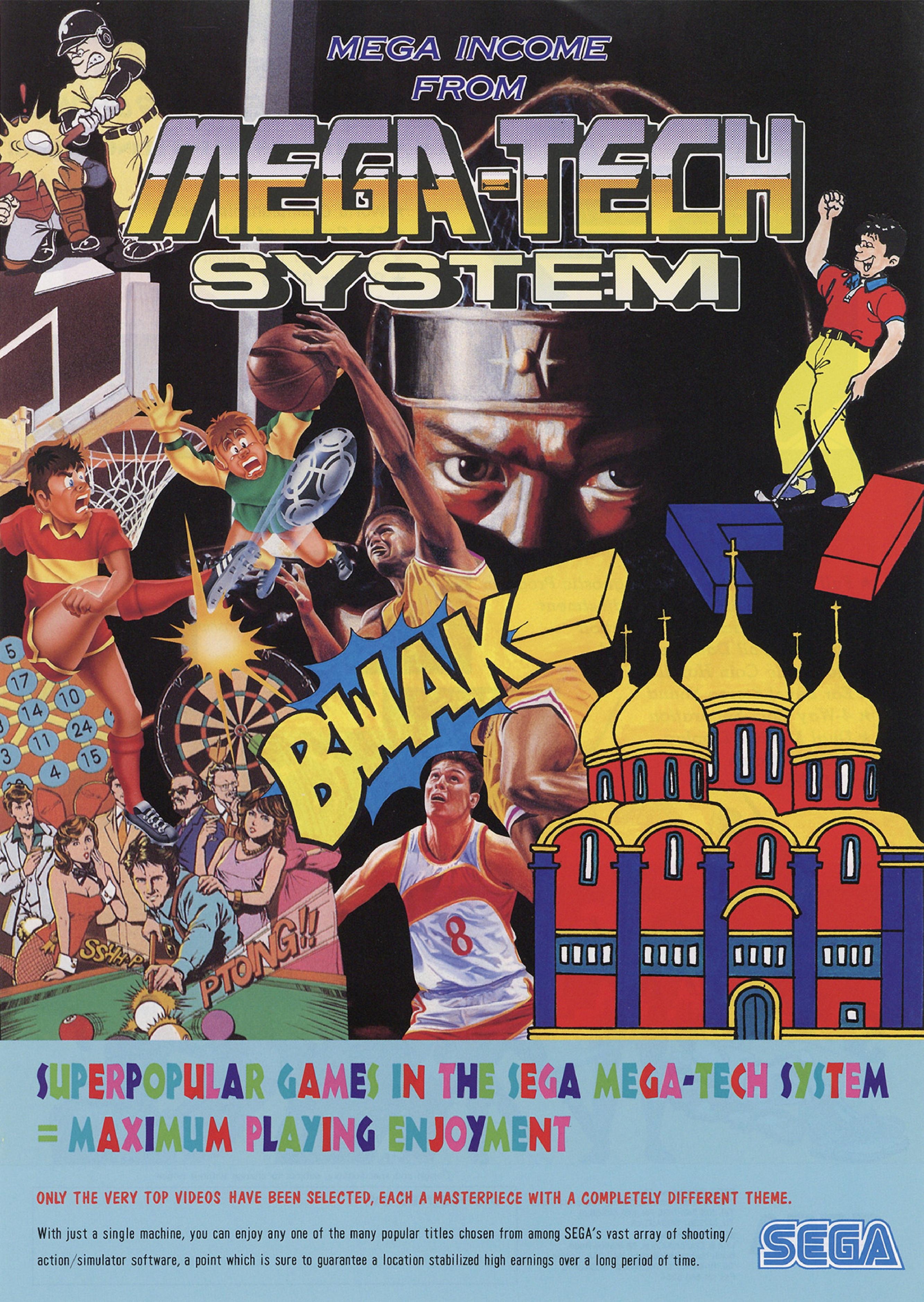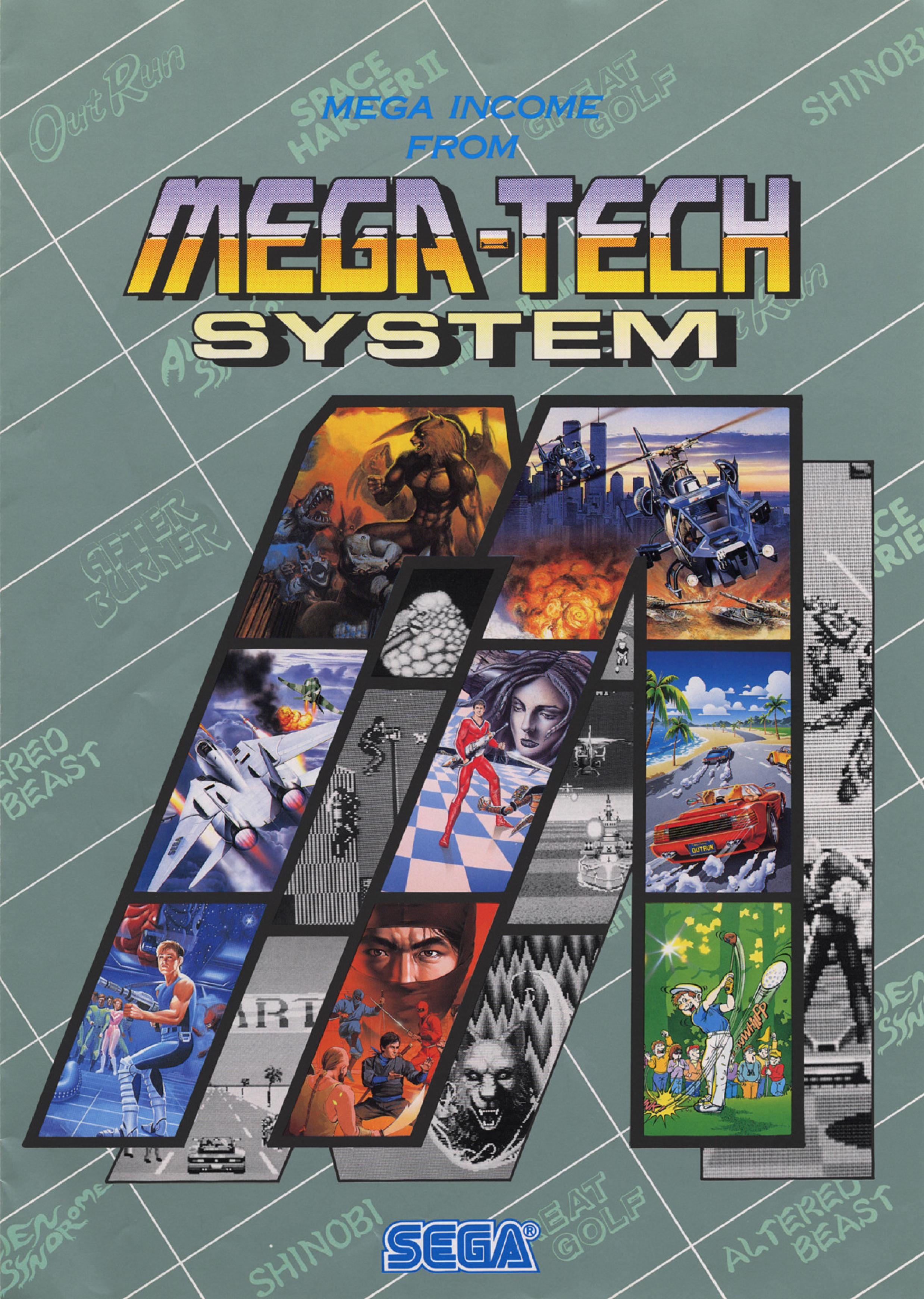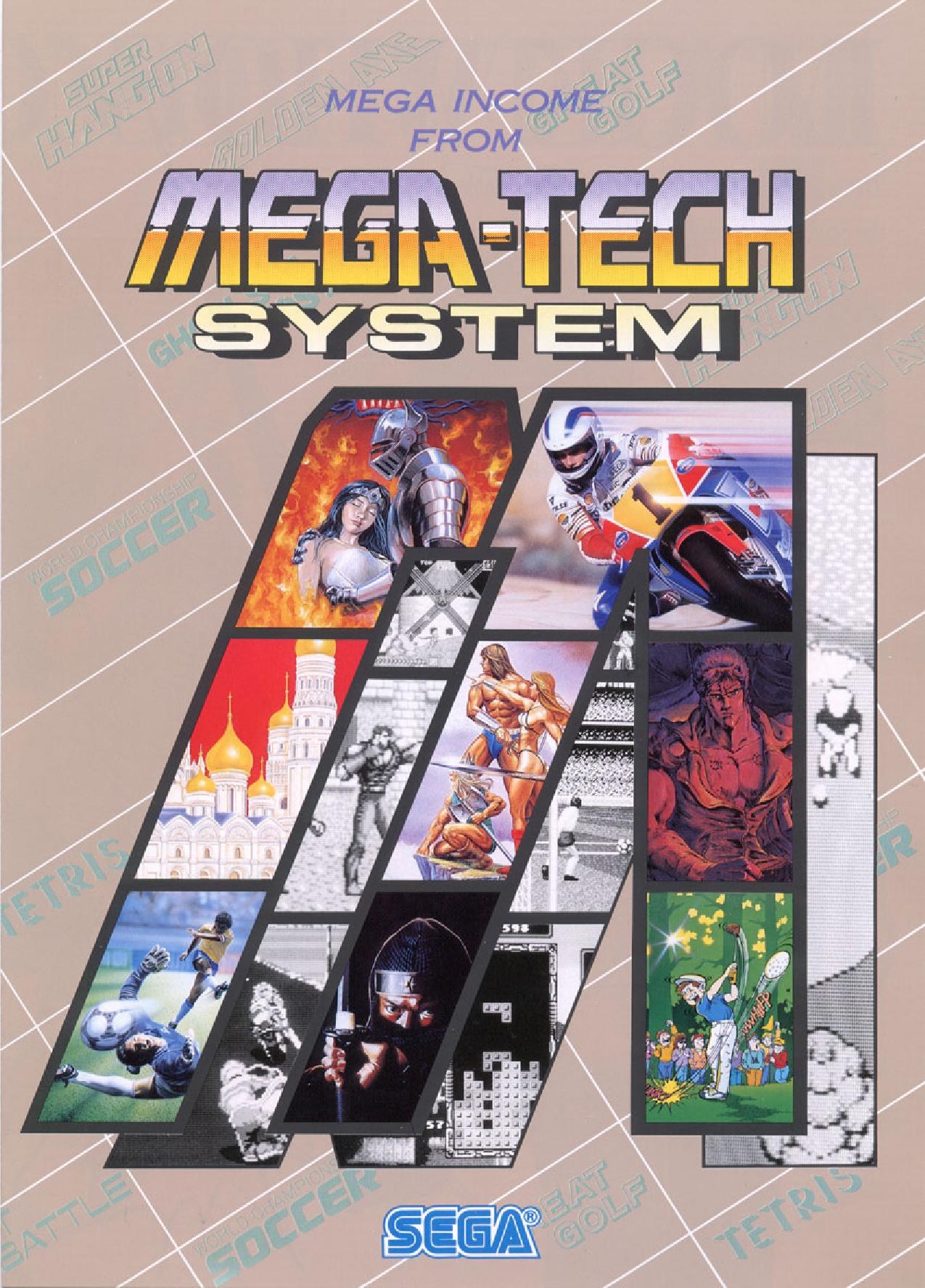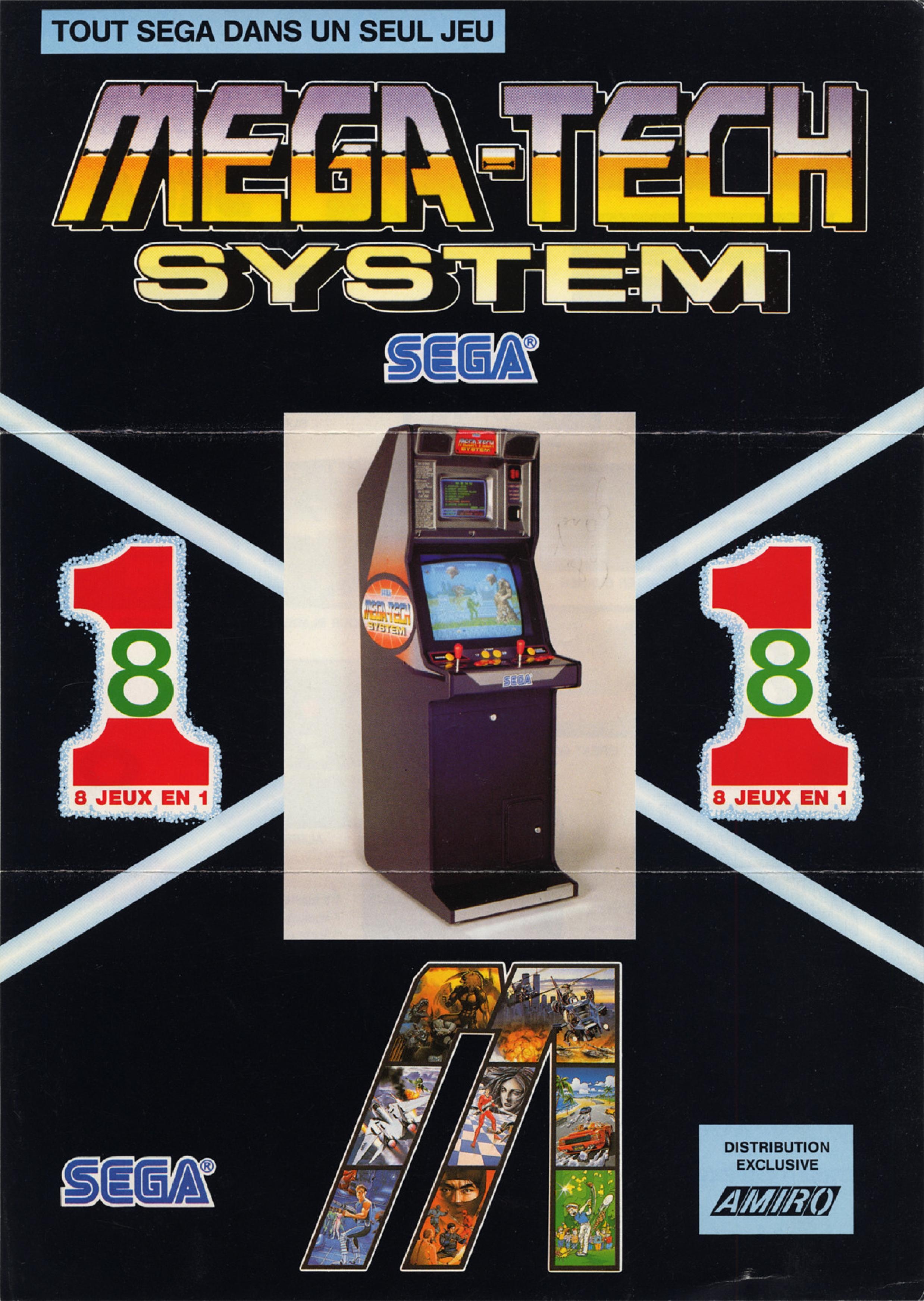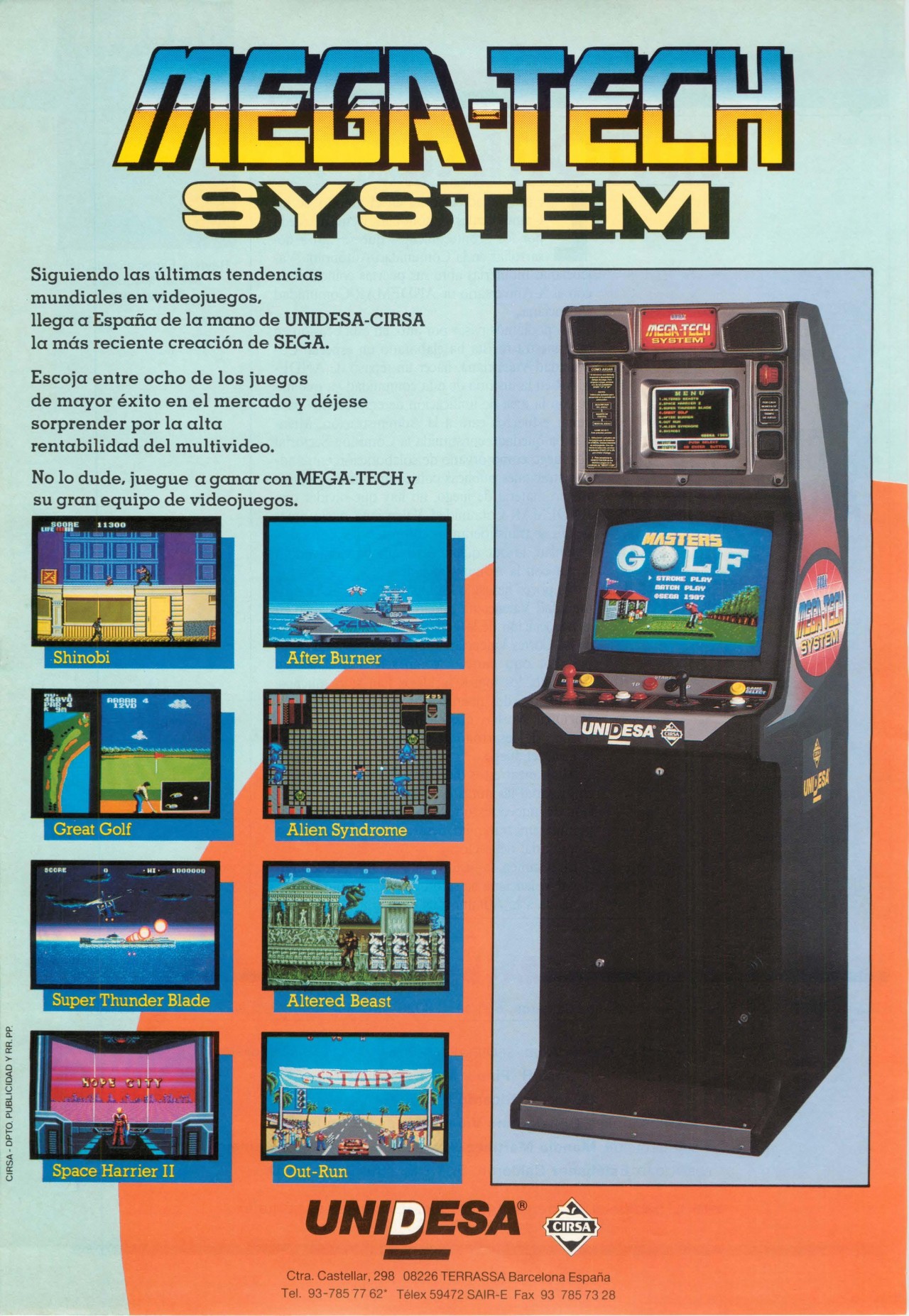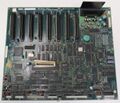Difference between revisions of "Mega-Tech System"
From Sega Retro
| Line 5: | Line 5: | ||
| name= | | name= | ||
| maker=[[Sega]] | | maker=[[Sega]] | ||
| − | | distributor={{company|Belam | + | | distributor={{company|[[R.H. Belam]]|region=US}}{{ref|https://archive.org/details/play-meter-volume-17-number-4-march-1991/page/n59/}} |
| releases={{releasesArcade | | releases={{releasesArcade | ||
| − | | system_date_us= | + | | system_date_us=1989 |
| system_date_uk=1989 | | system_date_uk=1989 | ||
| system_date_fr=19xx | | system_date_fr=19xx | ||
Revision as of 11:25, 15 August 2023
- For the UK Magazine, see MegaTech.

| |||||||||||||||||||||

| |||||||||||||||||||||
| Mega-Tech System | |||||||||||||||||||||
|---|---|---|---|---|---|---|---|---|---|---|---|---|---|---|---|---|---|---|---|---|---|
| Manufacturer: Sega | |||||||||||||||||||||
| Distributor: R.H. Belam (US)[1] | |||||||||||||||||||||
|
The Mega-Tech System is an arcade cabinet released by Sega in 1989, and Western counterpart to the Mega 6. It was based on the Sega Mega Drive home console, and was designed similarly to Nintendo's PlayChoice-10: players chose games from a menu of eight titles, with credits buying more play time (usually 1 minute per credit) rather than extra lives or continues; reaching a game over screen does not end the play session, and players can start over or choose a different game as long as there was some play time remaining.
Contents
Hardware
The unit features eight internal cartridge slots, allowing the arcade operator to change what games were available to play. The hardware was tweaked to disallow cheaper retail Mega Drive games to be played on the system, and likewise, Mega-Tech games will not run properly on a home Mega Drive console (and as the cartridges use the Japanese Mega Drive mould, they will not physically fit into western systems). The cabinet houses two monitors; the game itself rus on the bottom screen while the top screen displays information including gameplay time remaining (which flashes green when time runs short), the list of games available, gameplay instructions, and a short synopsis of each game.
The Mega-Tech launched with some of the best titles available at the time, including Thunder Force II, Altered Beast, Tetris, Last Battle, Space Harrier II, Golden Axe and The Revenge of Shinobi. Other popular Mega Drive games became available as time passed, such as Sonic the Hedgehog and Sonic the Hedgehog 2. Eventually a few Master System games were ported, but the amount of games ported was small. Apart from providing additional data for the top screen the games were unchanged from the original releases, so cheats still worked and extra lives or continues could be collected during play.
The Mega-Tech was succeeded by the Mega Play, which reduced the game menu from eight to four titles and changed to a more standard system of credits buying lives or continues rather than time. Mega Play games were heavily modified due to this, with cheats and extra lives no longer being available. The Mega Play cabinet shares many features with the Mega-Tech one, and with some modifications a Mega-Tech cabinet can be converted to a Mega Play machine without too much trouble. Mega-Tech and Mega Play cartridges are not interchangeable.
The Mega-Tech hardware consists of what is essentially a Mega Drive modified to include a timer control for arcade operations. It lacks expansion hardware support and so cannot be connected to the 32X and Mega-CD. The board also features eight cartridge ports which take cartridges similar to those used in Japanese Mega Drive consoles. The Mega-Tech uses no-frills silver and red cartridges as unlike a home console, the user isn't meant to see them.
Though the cartridges are the same shape, standard Mega Drive games do not work with the Mega-Tech hardware, and likewise Mega-Tech cartridges are not compatible with home consoles due to the extra information stored on them for the second monitor. Tiertex released an adaptor allowing Mega Drive games to be run on Mega-Tech hardware. A prototype adaptor has also currently been made by Rob Scott with the same function.
With Mega-Tech cartridges, the top screen rom is piggybacked to the game rom, the latter often being exactly the same as that found with ordinary Mega Drive cartridges.
List of games
- After Burner (19xx)
- Alien Storm (199x)
- Alien Syndrome (19xx)
- Altered Beast (19xx)
- Arnold Palmer Tournament Golf (19xx)
- Arrow Flash (199x)
- Astro Warrior (19xx)
- Bonanza Bros. (199x)
- California Games (199x)
- Columns (199x)
- Crack Down (199x)
- Cyber Police ESWAT (199x)
- Fantasy Zone (19xx)
- Fire Shark (199x)
- Forgotten Worlds (199x)
- Ghouls'n Ghosts (19xx)
- Golden Axe (19xx)
- Great Football (19xx)
- Great Golf (1989)
- Great Soccer (19xx)
- Joe Montana II Sports Talk Football (199x)
- Kid Chameleon (199x)
- Last Battle (199x)
- Mario Lemieux Hockey (199x)
- Michael Jackson's Moonwalker (199x)
- Mystic Defender (19xx)
- OutRun (19xx)
- Parlour Games (19xx)
- Shadow Dancer: The Secret of Shinobi (199x)
- Shinobi (19xx)
- Sonic the Hedgehog (199x)
- Sonic the Hedgehog 2 (199x)
- Space Harrier II (19xx)
- Spider-Man vs. The Kingpin (199x)
- Streets of Rage (199x)
- Super Hang-On (19xx)
- Super League (19xx)
- Super Monaco GP (199x)
- Super Real Basketball (199x)
- Tetris (19xx)
- The Revenge of Shinobi (199x)
- Thunder Force II (19xx)
- Turbo OutRun (199x)
- World Cup Soccer (19xx)
- Wrestle War (199x)
In addition to this list, a number of games were seemingly announced in promotional flyers, but have not been proven to exist. These include the Mega Drive games Air Diver[2], After Burner II[3], Alex Kidd in the Enchanted Castle[3], Assault Suit Leynos[2], Curse[2], Ka-Ge-Ki[2] and Psy-O-Blade[2] and the Master System games Black Belt[3], Kujakuou [3] and Power Strike II[3] (and two unknown games; "World Masters"[3] and "Dream Island"[2]).
Magazine articles
- Main article: Mega-Tech System/Magazine articles.
Promotional material
Photo gallery
A Mega-Tech cartridge (Shadow Dancer: The Secret of Shinobi)
Physical scans
References
| Sega arcade boards |
|---|
| Originating in arcades |
|
77
78
79
80
81
82
83
84
85
86
87
88
89
90
91
92
93
94
95
96
97
98
99
|
| Console-based hardware |
|
84
85
86
87
88
89
90
91
92
93
94
95
96
97
98
99
00
01
02
03
04
05
06
07
08
09
10
11
12
13
14
|
| PC-based hardware |
|
05
06
07
08
09
10
11
12
13
14
15
16
17
18
19
20
21
22
23
|

